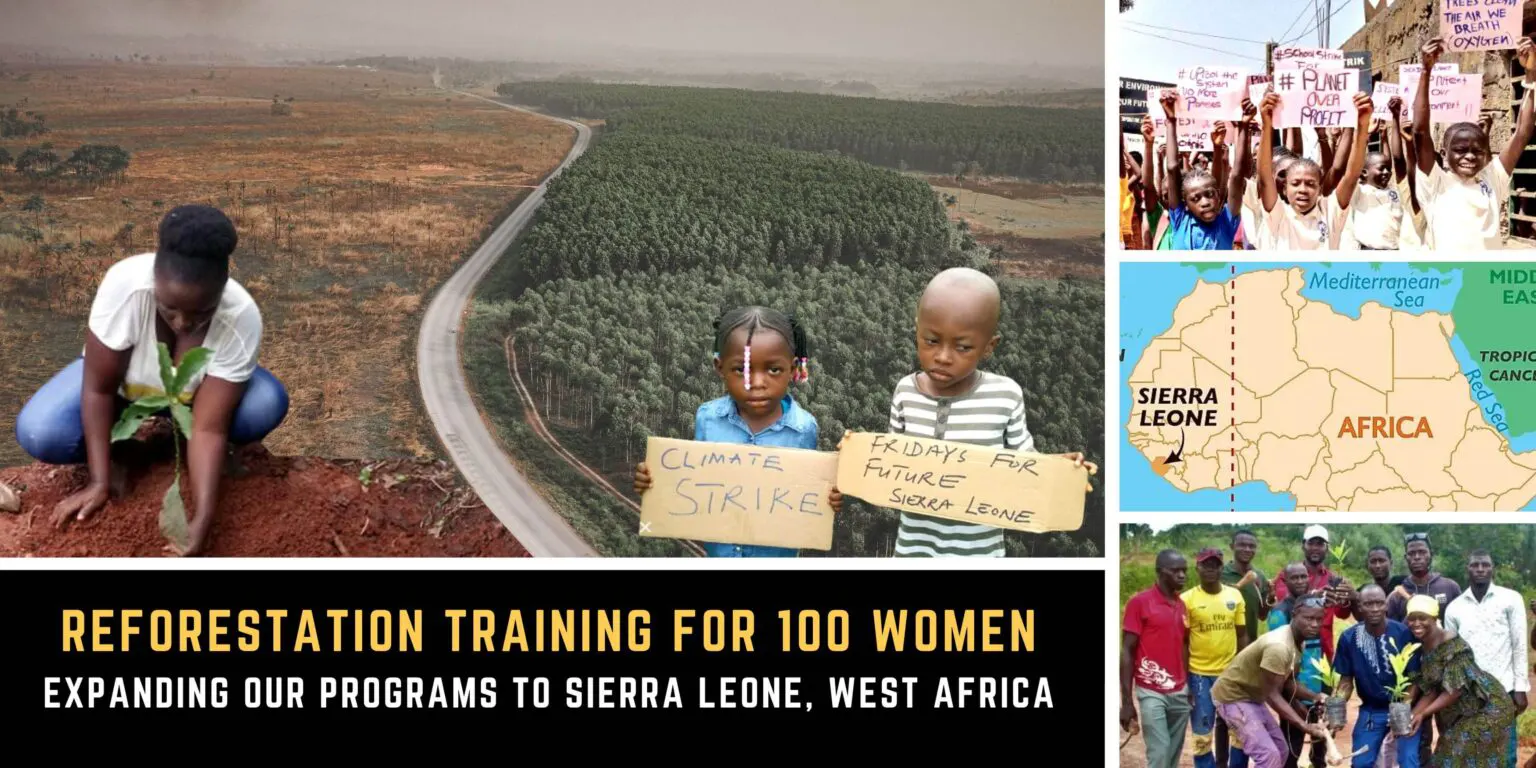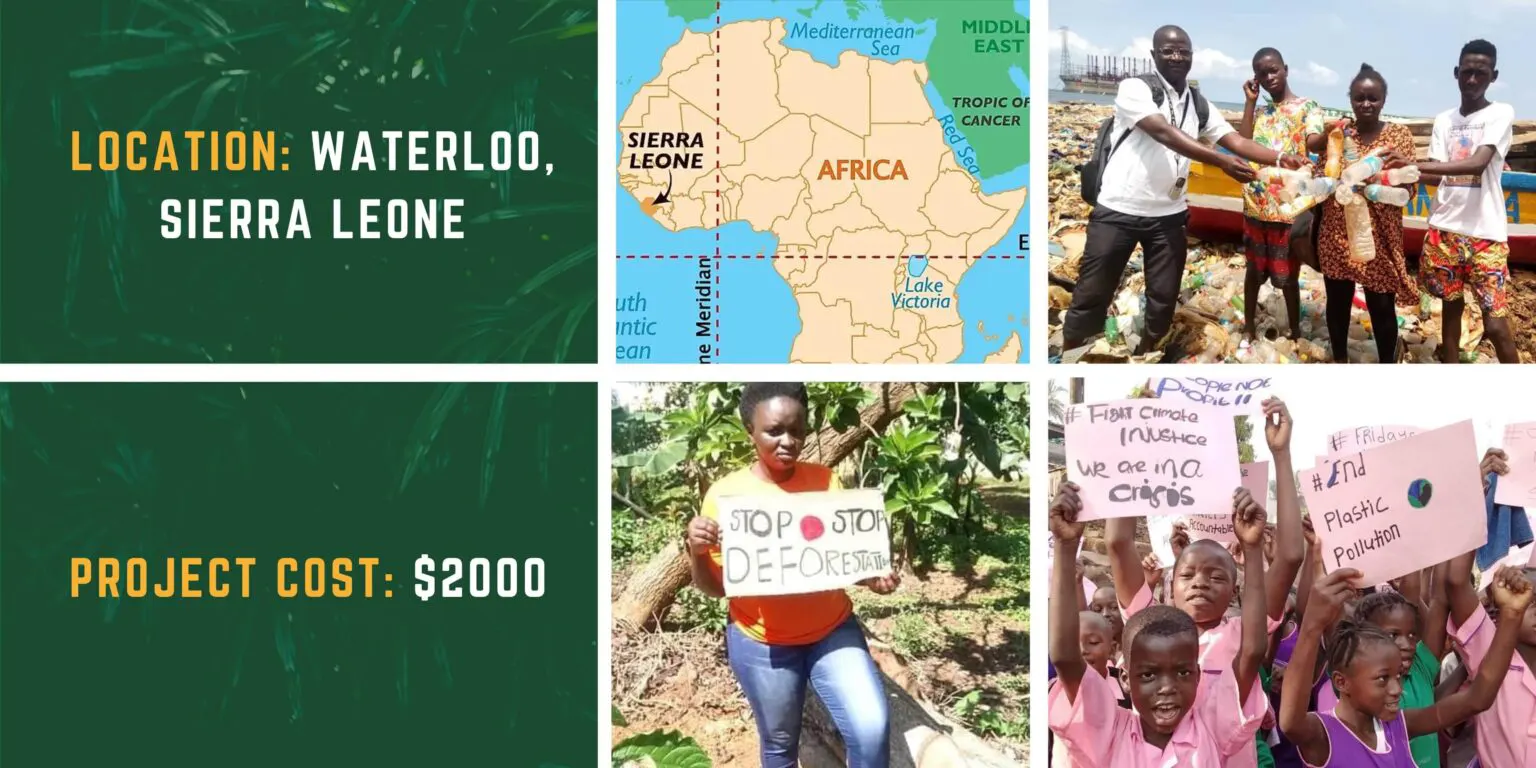
Project Overview:
In Women for Conservation’s first partnership project with Friday’s for Future Sierra Leone, we seek to launch a reforestation training project led by 100 local women and children. A 10-year rebel war, population pressure, and rapid deforestation have disproportionately burdened women, children, and other vulnerable groups in rural Sierra Leone. This grassroots, women-led project will reinforce food security, create sustainable economic opportunities, build community climate resilience, and create habitat for wildlife – all while reforesting around the Waterloo Community.

Species At Risk in Sierra Leone:

Urgent Need to build Climate Resilience
Significant deforestation is taking place in Waterloo and its clustered communities. People are engaged in cutting down trees on a large scale, as population pressure and resource scarcity take hold of this community just 30 km from Sierra Leone’s capital of Free Town.
Deforestation, together with a rapidly expanding population in the area, is exacerbating the negative impacts of climate change. It has contributed to a growing shortage of safe drinking water – putting people at risk of sickness, particularly the most vulnerable – children, elderly and disabled. Deterioration of the environment is linked to higher incidences of cholera, chicken pox, and whooping cough, among other diseases.
Increasingly reduced water supply is resulting in less water for irrigation of crops and poor crop yields. Extended dry periods followed by torrential rain and flooding lead to soil erosion and destruction of crops, not to mention damage to houses, bridges, and other infrastructure.
Our Solutions:
Jumpstart a local women-led reforestation program to address the negative impact of climate change in Sierra Leone. This funding will support training for 100 women and children in tree planting activities (planting, organic fertilizing, mulching and weeding) and ensure maintenance until saplings can become established.
Educate women to lead projects on conservation and reforestation and management of the land and local wildlife habitat. The program will also educate about the negative effects of climate change, and promote solar-powered induction stoves as alternatives to the use of wood and charcoal for cooking.
Create environmentally sustainable economic opportunities for women, through training women in the cultivation of climate change resilient crops and permaculture. By providing gardening training and resources, women can grow nutritious food for their families while earning income from selling food in their communities.
Replicate this program, to add an additional 100 women to the program each year. Once the program is established, we plan to expand our model to support similar reforestation projects in more vulnerable communities across Sierra Leone.

